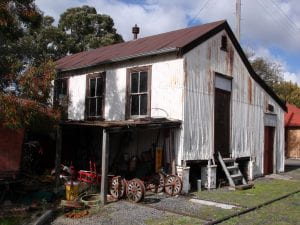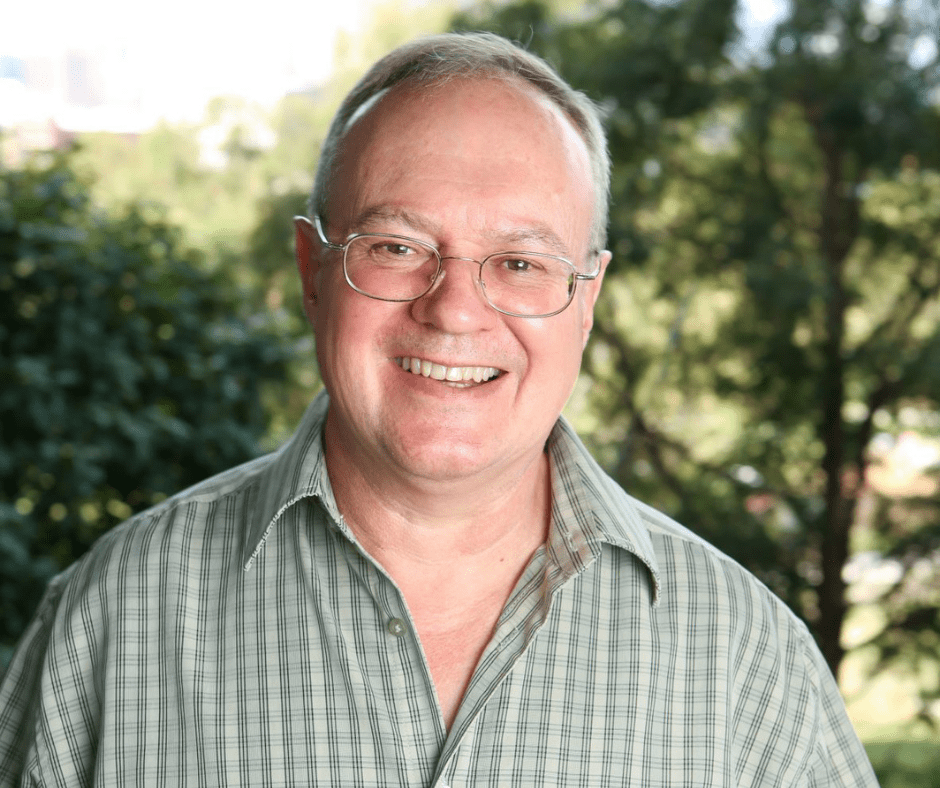University study isn’t always a straight line. Much like our passions and life itself, study can ebb and flow as circumstances change.
UNE Classical Languages and History student Stephen Palmer has taken a non-traditional approach to his studies – commencing university learning at times that work best for him. Stephen is a fantastic example of a lifelong learner whose passions have guided his study journey.
While Stephen always enjoyed studying Latin and Classical Greek, his career in financial services took him in another direction. It wasn’t until many years into his career that he decided to begin learning Latin once more. It was this return to education that inspired him to study Classical Languages through a Bachelor of Arts at UNE.
Part way through his Classical Languages major Stephen’s path once again diverted from study. This hiatus was initially planned as a year away from study but as circumstances continued to change it became a five-year break. However, Stephen wasn’t completely divorced from education as he spent some of this time teaching Latin in adult education.
In 2014, when the time was right once more, Stephen returned to his UNE studies, although during his time away from university he had become, in his own words, “an enthusiastic family history researcher with a lifelong interest in railway heritage”. So naturally upon returning to his Bachelor of Arts he took on a second major, this time in History.
“In studying at my own pace,” said Stephen, “I was able to take all the units that aligned with my history interests but were not offered every year by UNE. In both majors, I really enjoyed being encouraged by the academic staff to think creatively, and to research as widely as possible.”
Stephen, like many students in the varied field of History, found that new and exciting topics lie around every corner. Stephen described this best when he explained which classes sparked his curiosity:
“HIST333 ‘Waking the dead’ led me to researching how architectural styles in nineteenth-century cemeteries reflected contemporary attitudes to the end of life, while HIST339 ‘The family in history’ encouraged me to explore my family’s past within much broader historical contexts beyond genealogical research.”
These new study opportunities were not only highlights for Stephen, but they also allowed him to explore new aspects of his own personal history:
“Studying HIST331 ‘War and Australian society in the twentieth century’ gave me the opportunity to research and describe the First World War experiences of my grandfather, a New Zealander who served in Belgium and France. This was something not spoken about within my family and proved to be a challenging project, but through this unit I was able to discover his war story and share it with extended family.”
When study and passion meet in this way they can often result in unexpected ways, for example the results of Stephen’s research on his grandfather’s experience were published in The New Zealand Genealogist.
This kind of outcome wasn’t singular for Stephen as his research in HIST335 ‘Heritage Conservation’ resulted in conservation grants for his research subject – a store building at the former Cowra Locomotive Depot.

Storing Building at Cowra Locomotive Depot
“I incorporated my research into a NSW Government-funded conservation plan for this dilapidated but very rare structure. Subsequently, and on behalf of the non-profit Lachlan Valley Railway Society, I obtained two further NSW Government heritage grants for conservation works to the store building, and to prepare a conservation management strategy for the overall Depot site. These outcomes would not have been possible without the knowledge I gained from this unit.”
Results such as this show the inspiring work that passionate students such as Stephen can achieve, and further shows that amazing things can be done with a non-traditional education path.
Moreover, as a lifelong learner there are certain wisdoms Stephen has to share about his field of study: “I think producing accurate and well-researched history in its varied forms is important for all of us as individuals and for the broader community, because it helps us to understand how we got to where we are now, and hopefully to avoid repeating some mistakes from the past.”
Looking to the future, Stephen plans to continue volunteering in heritage conservation management. He also hopes to participate more in local history and urban conservation studies. Stephen explained that after completing his BA he hopes to write an Honours thesis on a research question drawn from family history. With all he has achieved thus far Stephen will likely find even more success in these future studies.



Recent Comments